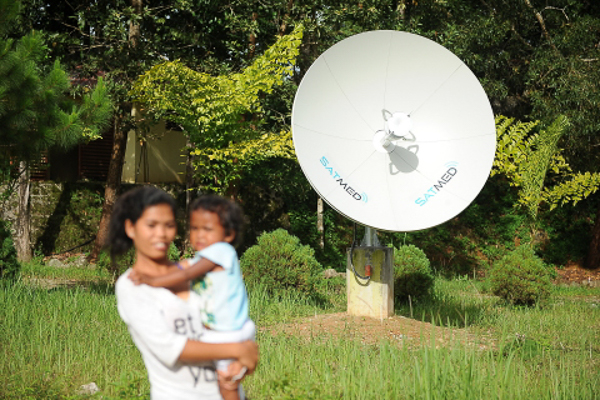
International satellite communications company, SES, and the Luxembourg Ministry of Foreign and European Affairs announced today that they have extended a contract to maintain and support SATMED, an e-health satellite platform, until 2020.
Under the new contract, SES will continue to develop the SATMED platform and its medical applications, support the platform’s data-hosting facility, and provide full user support with single point of contact. The agreement also includes the extension of the service to support new medical tools, as well as the provision of satellite connectivity over Africa, the Philippines and Bangladesh.
The SATMED solution is designed to connect doctors and nurses based in remote locations to the outside world. Healthcare professionals will use satellite connectivity to access the platform’s medical applications such as e-training, accessing patients’ e-medical records, virtual consultation, and video conferencing.
SATMED is also aimed at supporting regional development programmes and humanitarian operations in cooperation with both governmental and non-governmental organisations. Connectivity is enabled by the SES satellite fleet, while the SATMED web-applications and the encrypted back-ups are hosted in a secured data hosting facility in Luxembourg. Once deployed, the platform is delivered as a fully-managed service and includes help-desk, terminal maintenance and continuous user training.
“Since 2014, we had 10 SATMED deployments across Africa and Asia. The contract extension will help SATMED reinforce its positions as an internationally recognised e-health platform and, what is paramount for us, continue to bring innovative e-health solutions to remote communities,” said Gerhard Bethscheider, managing director of SES Techcom Services. “We are also looking forward to integrating new tools in the platform.”“Extending the contract with SES will enable us to develop healthcare through the SATMED platform on a global scale,” said the minister for development cooperation and humanitarian affairs, Romain Schneider.
“The platform we are providing together with partner NGOs has already helped improve healthcare in countries like Benin, Niger, Philippines and Bangladesh, among others. With the provision of satellite connectivity over other regions, we hope to open the doors to new deployments and further enable accessibility to healthcare for all, in line with the third UN Sustainable Development Goal and leaving no one behind.”








